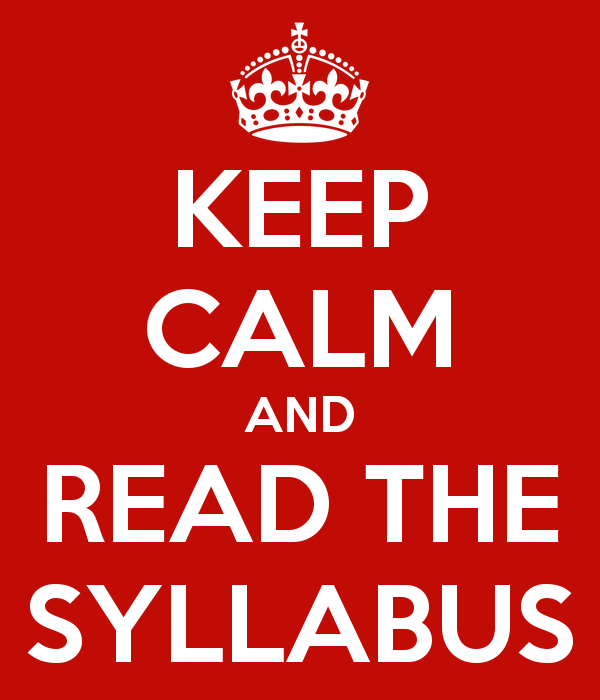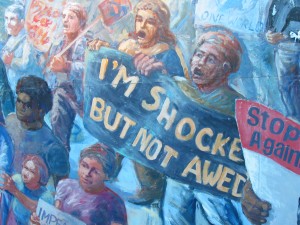
Tag Archives: Max Weber
In the Journals – March 2016

Welcome back to In the Journals, our monthly recap of recent publications regarding security, law, crime, and governance.
Special Issue of Anthropology News features two articles on Police
Although there’s been quite a bit of rumbling over the AAA’s “open access” policies over the last several years, one positive development IMHO has been to move the association’s newsletter, Anthropology News, to an online and OA format.

Police propaganda billboard advertising goals for building a “Peaceful and Healthy Society.” This photograph was taken in Taiwan in the early 2000s. Photo courtesy Jeffrey T Martin
And now readers of this blog can benefit. The most recent issue features several articles on the Anthropology of Law in its “In Focus” section, including two articles on the anthropology of policing: one from Anthropoliteia’s own Jeff Martin, entitled “How the Law Matters to the Taiwanese Police” and another by Jennie Simpson, a recent PhD from American University, “Building the Anthropology of Policing” (the latter featuring a short–and unexpected cameo from yours truly).
Personally, I’m super-psyched that the anthropology of policing is beginning to carve out a space in the larger world of anthropology. Not only am I currently brainstorming how to incorporate these blog posts into my course on Policing in Society, but I’m secretly formulating a response to Jeff arguing that his use of my beloved Max Weber is all wrong!
Reflections on Police Violence at Berkeley
 I’ve been meaning to provoke a bit more discussion regarding the confrontation between police and protesters at UC Berkeley a couple of weeks ago (although I did post something on the matter before the Nov 20th occupation), but the demands of teaching and preparing for AAA’s have been forestalling my best intentions. On top of that, to be honest, i’m not sure what I think about it. I’m left, mostly, with a bunch of half-articulated questions. Aaron Bady, a graduate student in English at Berkeley has some reflections along that line over at The Chronicle of Higher Education:
I’ve been meaning to provoke a bit more discussion regarding the confrontation between police and protesters at UC Berkeley a couple of weeks ago (although I did post something on the matter before the Nov 20th occupation), but the demands of teaching and preparing for AAA’s have been forestalling my best intentions. On top of that, to be honest, i’m not sure what I think about it. I’m left, mostly, with a bunch of half-articulated questions. Aaron Bady, a graduate student in English at Berkeley has some reflections along that line over at The Chronicle of Higher Education:
Some sort of administration response to the occupation was inevitable, of course. But why was it necessary to direct police violence against the students outside Wheeler Hall? (In fact, the university has called for an independent investigation of police actions and the university’s own decisions that resulted in the police being called onto the campus.) The more the riot police surrounded Wheeler, the more students came out to watch. But the police treated that assembly of peaceful spectators like a clear and present danger, pushing and shoving back students whose crime seemed to be their very presence on their own campus. I cannot overstate how pointless and stupid it was. The police had marked off a perimeter around the building with crime-scene tape, and I have yet to hear the allegation that a single student ever tried to cross it. But when the police began to set up metal barricades, they ordered students to move back as they smashed the barricades into the front row of students. Students who didn’t respond instantly were beaten with batons; students who touched the barricades had their hands pounded with force enough to break bones.
In response to these questions Bady makes some gestures towards both Althusser and Weber and, while I think both are important routes to traverse, I think the tone in the passage above is probably the most appropriate–simultaneously critical and perplexed. How can we proceed and maintain its tenor?
Jonathan Simon’s provocative thoughts on the UC Strike
Over at Governing through Crime, UC Professor Jonathan Simon has some provocative words for those participating in the current 3-day UC strike:
….We ought to be united in mobilization to save higher education in California. But in choosing to make the fight a convenient and ideologically satisfying (but for the most part phony) story about privatization, down-sizing, and pernicious, corporate minded university leadership, UC’s unions and their student and faculty allies are missing a historic opportunity to engage our fellow citizens in a critical dialog about our state’s future.
That future has been mortgaged to expensive dysfunctional prisons and a bipartisan law-enforcement establishment that is committed to mass incarceration at any price. But across three decades in which that project of exiling tens of thousands of largely poor and minority Californians to a prison archipelago of mammoth proportions (which yet remains grotesquely overcrowded) has been constructed, the supporters of higher education in this state have remained silent, assuming that the incarceration of people who don’t go to college anyway is not our problem. Now the chickens have come home to roost.
via Governing through Crime: Strike Against Prisons not Education.
I think Simon is dead on here, and offers a framing that explains some of the ambivalence I’ve had about the political mobilization that’s been developing.
Most of that ambivalence, I think, revolves around my hesitation at some of the explanatory narratives that have been used as organizational and motivational tools by unions and protesters… what Simon calls the”convenient and ideologically satisfying (but for the most part phony) story about privatization, down-sizing, and pernicious, corporate minded university leadership”.
Part of what I’ve been trying to point out, both vis-a-vis the strike and in my work on French policing, is that–as both Max Weber and Walter Benjamin have shown–all politics is necessarily about violence. This includes, especially includes, such mundane acts of governance as budgetary allocations. As everyone from Michel Foucault to Nikolas Rose have also tried to show, these decisions are literally choices between life and death. This is one aspect of what scholars are referring to when they talk about the biopolitical.
On the other hand, Californians are not completely comfortable with this violence and, for good reasons which I’ve also tried to explore, have tried to devise ways to limit it as much as possible.
What Jonathan’s work in Governing through Crime has shown, however, is that one of the few remaining–maybe the only remaining–domain in which the violence of governance seems legitimate to American voters is in the domain of crime control and punishment. It therefore has become the trope through which all American governance is filtered.
What we’re left with is, on the one hand, a massively inflated, impractical and unjust incarceration system and–importantly–on the the other hand, no way of conceiving any other legitimate form of governance.
This is not a question of corporate greed versus educational egalitarianism, or even good guys versus bad guys (as much as I’d like to hate on Mark Yudof along with everyone else), but of finding a way–literally–of justifying the very real kinds of violence involved in supporting education; of including higher education into the political calculus of life and death.
Of Police, Provinces, and Professionalization
Came across this today via H-Net Reviews:
Zhiqiu Lin. Policing the Wild North-West: A Sociological Study of the Provinvial Police in Alberta and Saskatchewan, 1905-1932. Calgary: University of Calgary Press, 2006. 210 pp. $34.95 (paper), ISBN 978-1-55238-171-7.
Reviewed by Joel Kropf (Carleton University)
Published on H-Canada (September, 2009)
Commissioned by Stephanie Bangarth
For the most part, it’s a thoroughly well-written review on what seems like a responsible piece of scholarship. In other words, I can’t see why it might be interesting at all (maybe Michelle, our resident Canada expert, can help me see more of what’s at stake here?).
One thing that did pop out at me, though, was this:
…he intends the term “professionalization” to evoke “rationalization” and Max Weber’s ideas concerning the latter. “Calculable and predictable rules and procedures” have tended more and more to infuse organizations and enterprises in many nineteenth- and twentieth-century societies, and this holds true, Lin believes, in the case of policing in Western Canada (p. 203n7). By no means does Lin claim that the patterns and approaches emerging among Canadian police during the period of his study always possessed a more professionalized flavor than their previous practices had. Sometimes the provincial police went with the less professionalized alternative from among the options that they might potentially have pursued. On the whole, however, the police found it attractive to incorporate new doses of professionalism into their patterns of work. After all, citizens who noted a police force’s proclivity for professionalized dealings became less likely to worry that they might suffer from prejudiced actions or capricious responses on the part of officers. And this, in turn, tended to reduce the chances that police would find their efforts impeded by distrust or recalcitrance on the part of the people among whom they worked.
There’s something that seems a bit off there; i’m still trying to put my finger on exactly what it is. It’s in the reading of Weber, for one (I love Max, but whatever… I can let that slide), but also in the portrait it offers of Canadians as fundamentally rational actors in search of a government worthy of them. Maybe that’s more accurate than I think, but something smells off there, to me… to be continued after some reflection.